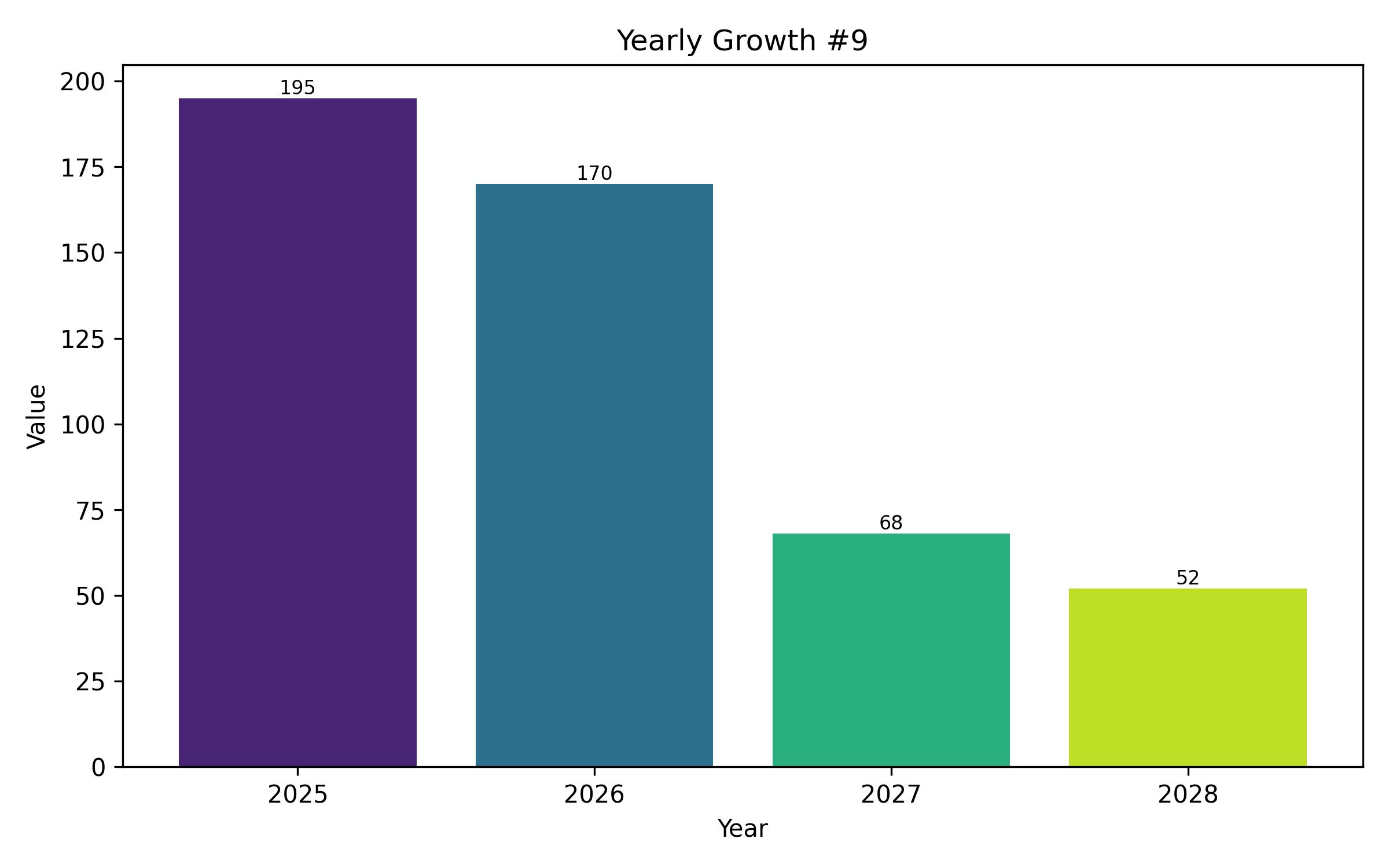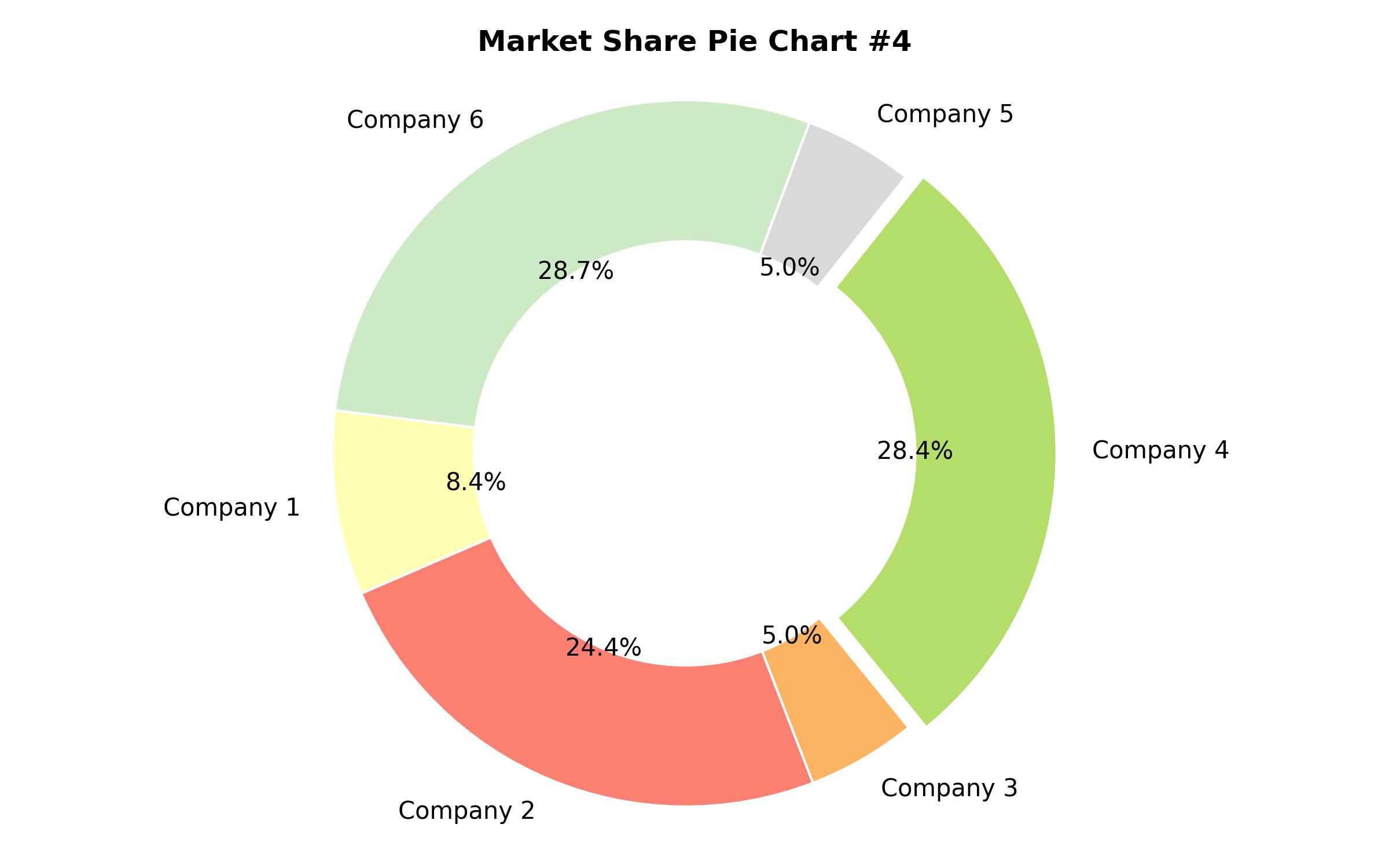Analysis of the South Korean Floriculture Market: Industry Size, Market Share, and Evolving Trends (2025-2035)
Overview:
The market for floriculture products in South Korea is set to record a valuation of USD 364.0 million in 2025. Projections indicate the industry is poised for a growth trajectory at a compound annual growth rate (CAGR) of 7.2% from 2025 to 2035. This expansion is anticipated to result in the market reaching an estimated worth of USD 735.0 million by the end of the forecast period.
Several factors are contributing to the market’s projected growth. A significant driver is the increasing focus on lifestyle and aesthetic enhancements among the population, particularly younger consumers and urban dwellers. Flowers are evolving beyond being solely for celebratory occasions; they are becoming integral components of home decor, office environments, and commercial spaces.
This trend is significantly influenced by social media platforms that popularize minimal living, the presence of indoor greenery, and overall well-being practices. Potted plants and indoor flowers are increasingly viewed as symbols of a contemporary and healthy lifestyle, thereby stimulating consistent daily purchases and integration into routine life.
The demographic shifts occurring in South Korea, including an aging population, are also playing a role in shaping market demand. Horticulture therapy and local community garden initiatives are gaining traction, especially as therapeutic tools for mental health support and engagement opportunities for older segments of the population. This expanded application highlights floriculture’s utility beyond mere aesthetics.
Furthermore, governmental support for agricultural innovation and urban greening projects is providing a substantial boost to the sector. Policies promoting sustainable farming techniques, the adoption of precision agriculture technologies, and urban landscape enhancements are opening new avenues for businesses within the floriculture market to thrive. The market is also benefitting from a rising consumer preference for locally sourced and seasonal floral varieties, reflecting a growing inclination towards sustainable consumption.
The widespread adoption of digital platforms, including online flower retailers and e-commerce sites, is significantly enhancing accessibility and convenience for consumers. This digital shift has empowered florists to extend their reach to a broader clientele, encompassing tech-savvy younger generations and corporate clients. Offerings such as floral subscription services, customized floral arrangements, and expedited delivery options are transforming flowers from occasional luxury purchases into more routine lifestyle items or impulse buys.
An analysis of purchasing trends across different end-use segments reveals distinct consumer behaviors. In the residential sector, individuals, particularly younger adult demographics, are showing a preference for visually appealing, low-maintenance plants and flowers that fit contemporary home aesthetics. Favorites include succulents, orchid varieties, and smaller flowering plants, with key purchasing criteria centered on ease of care, cost-effectiveness, and sustainable aspects.
The corporate and commercial sector, spanning hotels, offices, and dining establishments, utilizes floriculture for enhancing brand image and atmosphere. Their focus is on sophisticated, durable floral designs that align with their organizational identity. There is an observable increase in the adoption of professional floral design services and recurring floral subscriptions within this segment, catering to businesses seeking consistent, hassle-free aesthetic solutions.

| Report Attribute | Details |
|---|---|
| Market Size in 2025 | USD 364.0 million |
| Revenue Forecast for 2035 | USD 735.0 million |
| Growth Rate (CAGR) | 7.2% from 2025 to 2035 |
| Base Year for Estimation | 2024 |
| Historical Data | 2019 – 2023 |
| Forecast Period | 2025 – 2035 |
| Quantitative Units | Revenue in USD million/billion and CAGR from 2025 to 2035 |
| Report Coverage | Revenue forecast, company market share, competitive landscape, growth factors, and trends |
| Covered Segments | Type, Flower Type, End Use, Sales Channel, and Region |
| Regional Scope | South Korea |
| Country Scope | South Korea |
| Key Companies Analyzed | Yangjae Flower Market, FarmHannong, Forest Produce Ltd., Selecta Cut Flowers SAU., Native Floral Group, Tropical Foliage Plants, Inc., Oserian Group, Esmeralda Farms, Marginpar BV, DOS GRINGOS, LLC, Flamingo Horticulture Ltd. |
| Customization Options | Free report customization (up to 8 analysts working days) with purchase. Changes to country, regional, and segment scope |
| Pricing and Purchase Options | Customizable purchase options for tailored research needs |

Report Coverage & Deliverables
- Market Trends And Dynamics
- Competitve Benchmarking
- Historical data and forecasts
- Value/Volume analysis
- Company revenue shares and key strategies
- Regional opportunities
This is an indicative segmentation. Please request a sample report to see detail segmentation of this market.
Detailed Market Segmentation
-
By Type
- Cut Flowers
- Cut Foliage
- Potted Plants
- Nursery Plants
-
By Flower Type
- Roses
- Chrysanthemums
- Lilies
- Orchids
- Carnations
- Tulips
- Other Flower Types
-
By End Use
- Residential
- Commercial
- Events & Ceremonies
- Healthcare & Wellness
-
By Sales Channel
- Online Stores
- Specialty Stores
- Supermarkets & Hypermarkets
- Florist Chains
-
By Region
- South Korea
Table of Content
- Executive Summary
- Market Analysis and Insights
- Key Trends and Innovations
- Market Dynamics
- Market Value Forecast 2025-2035
- Market Segmentation Analysis
-
Market Analysis by Type
- Cut Flowers Insights
- Cut Foliage Trends
- Potted Plants Demand
- Nursery Plants Overview
-
Market Analysis by Flower Type
- Rose Market Share
- Chrysanthemum Popularity
- Lily Market Trends
- Orchid Segment Growth
- Carnation Demand
- Tulip Market Analysis
- Other Flower Varieties
-
Market Analysis by End Use
- Residential Segment
- Commercial Applications
- Events and Ceremonies Market
- Healthcare and Wellness Sector
-
Market Analysis by Sales Channel
- Online Sales Channel
- Specialty Stores Performance
- Supermarkets and Hypermarkets Contribution
- Florist Chains Analysis
- Geographical Market Analysis: South Korea
- Competitive Landscape Overview
- Key Company Profiles
- Industry Risk Assessment
- Future Market Outlook
- Research Methodology
- Definitions and Assumptions
- About the Report
